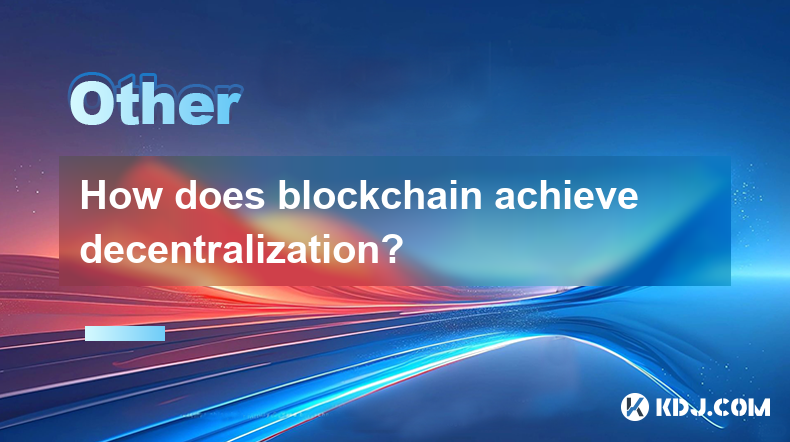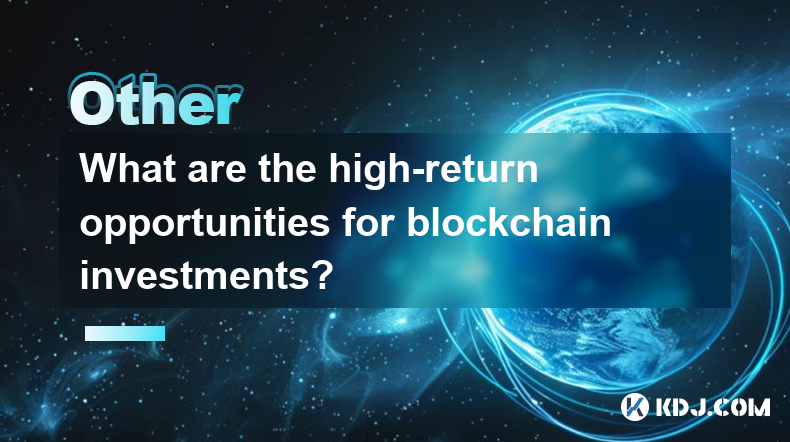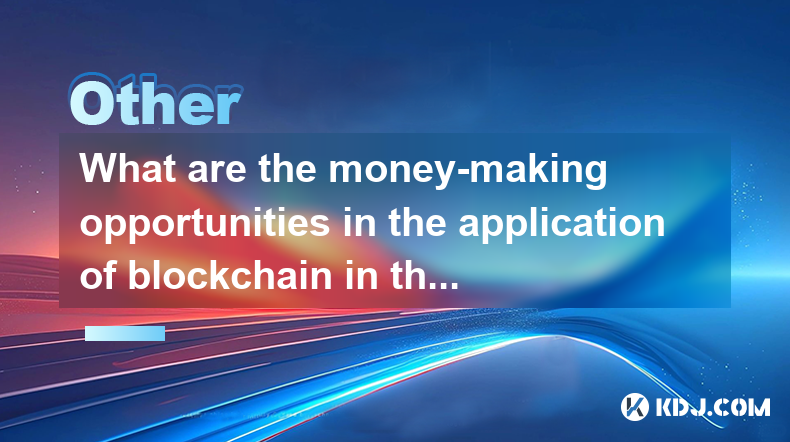-
 Bitcoin
Bitcoin $82,695.1187
-0.22% -
 Ethereum
Ethereum $1,785.8055
-0.18% -
 Tether USDt
Tether USDt $0.9996
0.01% -
 XRP
XRP $2.1251
0.91% -
 BNB
BNB $592.7818
0.00% -
 Solana
Solana $117.8243
-0.70% -
 USDC
USDC $1.0001
0.03% -
 Dogecoin
Dogecoin $0.1672
-0.21% -
 Cardano
Cardano $0.6479
-0.77% -
 TRON
TRON $0.2379
-0.83% -
 Chainlink
Chainlink $12.6354
-0.64% -
 UNUS SED LEO
UNUS SED LEO $8.9846
-5.00% -
 Toncoin
Toncoin $3.2501
-3.38% -
 Stellar
Stellar $0.2514
-2.24% -
 Avalanche
Avalanche $17.8861
0.50% -
 Sui
Sui $2.2029
-1.18% -
 Shiba Inu
Shiba Inu $0.0...01211
-0.02% -
 Hedera
Hedera $0.1603
-2.17% -
 Litecoin
Litecoin $82.1586
-2.39% -
 Polkadot
Polkadot $3.9148
-3.22% -
 MANTRA
MANTRA $6.2911
-0.02% -
 Bitcoin Cash
Bitcoin Cash $297.5641
0.19% -
 Dai
Dai $1.0001
0.02% -
 Bitget Token
Bitget Token $4.4277
-2.52% -
 Ethena USDe
Ethena USDe $0.9991
-0.01% -
 Pi
Pi $0.6229
17.76% -
 Monero
Monero $216.0038
-0.27% -
 Hyperliquid
Hyperliquid $11.5829
0.54% -
 Uniswap
Uniswap $5.7983
-0.29% -
 OKB
OKB $50.9191
5.89%
How does blockchain achieve decentralization?
Blockchain's decentralization relies on a distributed ledger, consensus mechanisms (PoW/PoS), and independent node verification, ensuring data integrity and resisting censorship via cryptographic hashing and decentralized governance.
Mar 20, 2025 at 12:08 pm

Key Points:
- Blockchain's decentralized nature stems from its distributed ledger technology. No single entity controls the entire network.
- Consensus mechanisms, like Proof-of-Work (PoW) and Proof-of-Stake (PoS), ensure data integrity and prevent manipulation.
- Nodes independently verify and validate transactions, making the system resistant to censorship and single points of failure.
- Cryptographic hashing secures data, linking blocks together immutably and creating a transparent audit trail.
- Decentralized governance models allow for community participation in network upgrades and decision-making.
How Does Blockchain Achieve Decentralization?
Blockchain technology achieves decentralization through a combination of innovative techniques. Unlike traditional databases controlled by a central authority, blockchain distributes the database across a vast network of computers called nodes. This distributed ledger ensures no single entity holds complete control, making the system inherently resistant to censorship and single points of failure.
The core of blockchain's decentralization lies in its distributed ledger technology. Each transaction is recorded as a "block" and added to a chain of previous blocks. This chain is replicated across all participating nodes. Any attempt to alter a past transaction requires changing the data on a majority of nodes, a practically impossible task given the sheer number of participants.
A critical component of blockchain's decentralization is its consensus mechanism. These mechanisms, such as Proof-of-Work (PoW) and Proof-of-Stake (PoS), determine how new blocks are added to the chain and ensure data integrity. PoW relies on computational power to validate transactions, while PoS uses a staking mechanism where users stake their cryptocurrency to participate in validation. Both methods require consensus from multiple nodes before a new block is added, preventing manipulation by a single entity.
Each node in the network independently verifies and validates transactions. This process ensures that all participants have a consistent view of the blockchain's state. If a malicious actor tries to tamper with a transaction, other nodes will reject it because it doesn't match their validated version. This inherent redundancy and validation process is fundamental to blockchain's decentralized nature.
Cryptography plays a crucial role in securing the blockchain and maintaining its decentralization. Each block is linked to the previous one using cryptographic hashing. This creates an immutable chain where altering one block would require altering all subsequent blocks, a computationally infeasible task. This cryptographic linking, along with the distributed ledger, ensures the transparency and integrity of the blockchain.
Decentralization in blockchain extends beyond the technological aspects; it also encompasses governance. Many blockchain networks utilize decentralized governance models, allowing community members to participate in decision-making processes related to network upgrades, protocol changes, and other essential aspects. This democratic approach ensures that the network evolves based on the consensus of its participants, further strengthening its decentralized nature.
The process of adding a new transaction to the blockchain typically involves these steps:
- Transaction Broadcast: A user initiates a transaction, which is broadcast to the network.
- Verification by Nodes: Multiple nodes independently verify the transaction's validity, checking for sufficient funds, correct signatures, and adherence to network rules.
- Block Creation: Verified transactions are grouped into a block.
- Block Propagation: The newly created block is propagated across the network.
- Consensus Achieved: The consensus mechanism (PoW or PoS) ensures that a majority of nodes agree on the validity of the block.
- Block Addition: Once consensus is reached, the block is added to the blockchain.
This entire process is decentralized, with no single point of control or authority. The security and integrity of the blockchain rely on the collective effort of the network's participants.
The immutability of the blockchain is another crucial aspect of its decentralization. Once a block is added to the chain, it is virtually impossible to alter or delete it. This property ensures the transparency and reliability of the data stored on the blockchain, enhancing trust and security within the system. The cryptographic hashing and consensus mechanisms work in tandem to achieve this immutability.
The scalability of blockchain networks is an ongoing challenge, especially as the number of transactions increases. Different solutions are being explored to improve scalability without compromising decentralization, such as sharding (dividing the blockchain into smaller parts) and layer-2 scaling solutions. These solutions aim to increase transaction throughput while maintaining the decentralized nature of the blockchain.
Frequently Asked Questions:
Q: Can a single entity control a blockchain?
A: No, a fundamental principle of blockchain is its decentralized nature. No single entity controls the network. Control is distributed across numerous independent nodes.
Q: How does blockchain prevent censorship?
A: The distributed nature of the blockchain makes censorship extremely difficult. To censor a transaction, a malicious actor would need to control a majority of the nodes, which is practically impossible in large, well-established networks.
Q: What are the benefits of decentralization in blockchain?
A: Decentralization enhances security, resilience, transparency, and censorship resistance. It reduces reliance on central authorities and promotes trust among participants.
Q: What are the challenges of maintaining decentralization?
A: Challenges include scalability, energy consumption (particularly with PoW), and the potential for centralization through mining pools or staking pools dominating the network.
Q: How does blockchain ensure data integrity?
A: Cryptographic hashing and consensus mechanisms ensure data integrity. Any attempt to alter data would be immediately detected and rejected by the network.
Disclaimer:info@kdj.com
The information provided is not trading advice. kdj.com does not assume any responsibility for any investments made based on the information provided in this article. Cryptocurrencies are highly volatile and it is highly recommended that you invest with caution after thorough research!
If you believe that the content used on this website infringes your copyright, please contact us immediately (info@kdj.com) and we will delete it promptly.
- Aptos (APT) Spot ETF Application by Bitwise Asset Management Sparks Fresh Excitement in the Crypto Market
- 2025-04-06 00:20:12
- Bitcoin and Ethereum Prices End Q1 of 2025 in the Red
- 2025-04-06 00:20:12
- CryptoQuant Reveals the Growing Influence of “New Whales” in the Bitcoin Market
- 2025-04-06 00:15:12
- NoviqTech Tokenizes Recycled Amines on Hedera Network
- 2025-04-06 00:15:12
- FX Guys (FXG) Token, The Next 100x Altcoin
- 2025-04-06 00:10:12
- DePIN track leader Roam will participate as a primary sponsor in the 2025 Hong Kong Web3 Carnival
- 2025-04-06 00:10:12
Related knowledge

Is the ranking of Chinese blockchain apps real and reliable?
Apr 04,2025 at 09:01pm
The ranking of Chinese blockchain apps has become a topic of interest for many in the cryptocurrency community, as it provides insights into the popularity and adoption of blockchain technology within China. However, the reliability and authenticity of these rankings are often questioned. This article aims to delve into the factors that influence these ...

What are the future development trends of blockchain game development?
Apr 03,2025 at 05:00am
Blockchain technology has revolutionized various industries, and gaming is no exception. As we look to the future, several trends are set to shape the development of blockchain games. These trends not only promise to enhance the gaming experience but also to integrate blockchain technology more seamlessly into the gaming ecosystem. Let's explore these t...

What are the high-return opportunities for blockchain investments?
Apr 05,2025 at 02:35pm
Blockchain technology has revolutionized the financial world, offering numerous high-return investment opportunities. These opportunities span various sectors within the cryptocurrency ecosystem, including cryptocurrencies, decentralized finance (DeFi), non-fungible tokens (NFTs), and blockchain startups. Each of these areas presents unique risks and re...

What are the maintenance costs of blockchain system development?
Apr 03,2025 at 06:07pm
The maintenance costs of blockchain system development are multifaceted and depend on various factors. These costs can include technical maintenance, security updates, infrastructure expenses, and personnel costs. Understanding these elements is crucial for anyone planning to develop or maintain a blockchain system. Technical MaintenanceTechnical mainte...

What are the money-making models of blockchain games?
Apr 04,2025 at 02:00pm
Blockchain games have emerged as a revolutionary way for players to earn real money while enjoying their favorite pastime. These games leverage the power of blockchain technology to create unique money-making models that benefit both the players and the developers. In this article, we will explore the various money-making models of blockchain games and ...

What are the money-making opportunities in the application of blockchain in the field of Internet of Things?
Apr 05,2025 at 10:35pm
The integration of blockchain technology with the Internet of Things (IoT) presents numerous money-making opportunities. Blockchain, with its decentralized and secure nature, can revolutionize how IoT devices interact, manage data, and conduct transactions. This article will explore various avenues where entrepreneurs, developers, and investors can capi...

Is the ranking of Chinese blockchain apps real and reliable?
Apr 04,2025 at 09:01pm
The ranking of Chinese blockchain apps has become a topic of interest for many in the cryptocurrency community, as it provides insights into the popularity and adoption of blockchain technology within China. However, the reliability and authenticity of these rankings are often questioned. This article aims to delve into the factors that influence these ...

What are the future development trends of blockchain game development?
Apr 03,2025 at 05:00am
Blockchain technology has revolutionized various industries, and gaming is no exception. As we look to the future, several trends are set to shape the development of blockchain games. These trends not only promise to enhance the gaming experience but also to integrate blockchain technology more seamlessly into the gaming ecosystem. Let's explore these t...

What are the high-return opportunities for blockchain investments?
Apr 05,2025 at 02:35pm
Blockchain technology has revolutionized the financial world, offering numerous high-return investment opportunities. These opportunities span various sectors within the cryptocurrency ecosystem, including cryptocurrencies, decentralized finance (DeFi), non-fungible tokens (NFTs), and blockchain startups. Each of these areas presents unique risks and re...

What are the maintenance costs of blockchain system development?
Apr 03,2025 at 06:07pm
The maintenance costs of blockchain system development are multifaceted and depend on various factors. These costs can include technical maintenance, security updates, infrastructure expenses, and personnel costs. Understanding these elements is crucial for anyone planning to develop or maintain a blockchain system. Technical MaintenanceTechnical mainte...

What are the money-making models of blockchain games?
Apr 04,2025 at 02:00pm
Blockchain games have emerged as a revolutionary way for players to earn real money while enjoying their favorite pastime. These games leverage the power of blockchain technology to create unique money-making models that benefit both the players and the developers. In this article, we will explore the various money-making models of blockchain games and ...

What are the money-making opportunities in the application of blockchain in the field of Internet of Things?
Apr 05,2025 at 10:35pm
The integration of blockchain technology with the Internet of Things (IoT) presents numerous money-making opportunities. Blockchain, with its decentralized and secure nature, can revolutionize how IoT devices interact, manage data, and conduct transactions. This article will explore various avenues where entrepreneurs, developers, and investors can capi...
See all articles




















































































